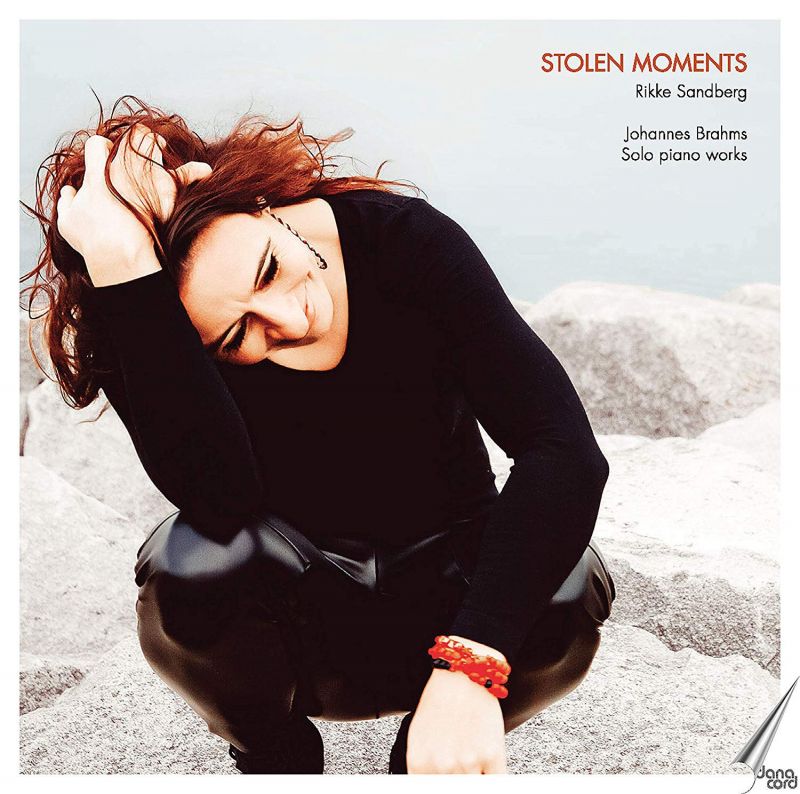BRAHMS Piano Pieces (Fabian Müller) 'Stolen Moments' (Rikke Sandberg)
View record and artist detailsRecord and Artist Details
Composer or Director: Johannes Brahms
Genre:
Instrumental
Label: Berlin Classics
Magazine Review Date: 03/2019
Media Format: CD or Download
Media Runtime: 69
Mastering:
DDD
Catalogue Number: 0301155BC

Tracks:
| Composition | Artist Credit |
|---|---|
| (4) Ballades |
Johannes Brahms, Composer
Fabian Müller, Piano Johannes Brahms, Composer |
| (8) Pieces |
Johannes Brahms, Composer
Fabian Müller, Piano Johannes Brahms, Composer |
| (3) Pieces |
Johannes Brahms, Composer
Fabian Müller, Piano Johannes Brahms, Composer |
Composer or Director: Johannes Brahms, Johann Sebastian Bach
Genre:
Instrumental
Label: Danacord
Magazine Review Date: 03/2019
Media Format: CD or Download
Media Runtime: 72
Mastering:
DDD
Catalogue Number: DACOCD835

Tracks:
| Composition | Artist Credit |
|---|---|
| (3) Sonatas and 3 Partitas, Movement: Partita No. 2 in D minor, BWV1004 |
Johann Sebastian Bach, Composer
Johann Sebastian Bach, Composer Rikke Sandberg, Piano |
| (10) Hungarian Dances, Movement: No. 1 in G minor |
Johannes Brahms, Composer
Johannes Brahms, Composer |
| (10) Hungarian Dances, Movement: No. 4 in F minor |
Johannes Brahms, Composer
Johannes Brahms, Composer Rikke Sandberg, Piano |
| (7) Pieces, Movement: No. 2, Intermezzo in A minor |
Johannes Brahms, Composer
Johannes Brahms, Composer Rikke Sandberg, Piano |
| (8) Pieces |
Johannes Brahms, Composer
Johannes Brahms, Composer Rikke Sandberg, Piano |
| Variations on a Hungarian song |
Johannes Brahms, Composer
Johannes Brahms, Composer Rikke Sandberg, Piano |
Author: Patrick Rucker
He begins with the Op 10 Ballades, as difficult to pull off as the opener of a CD as they are of a recital. But from the beginning, a richly atmospheric sound, beautiful chord-voicing and a genuine sense of an ominous tale unfolding alerts us to something special at work here. As the pieces progress, it becomes evident that, by scrupulous observance of Brahms’s dynamic, articulation and pedal markings, Müller is able to achieve shapely formal contours, avoiding the fragmentation to which these pieces often fall prey. He is also able to tease out astonishingly varied textures from the composer’s slavishly chord-bound figurations.
These qualities blossom and pollinate the more succinct and contrasted Eight Pieces, Op 76, creating in each a miniature lyrical or dramatic gestalt. The ubiquitous B minor Capriccio, perhaps the first small Brahms piece to enter the repertory and played by everybody, sounds less whimsically mincing than slightly sinister, thanks to Müller’s deft applications of subtle rubato to an inerrant sense of momentum. The subsequent A flat Intermezzo floats a luxuriant legato above what could be a delicate string pizzicato accompaniment. In an interesting take on the B flat Intermezzo, the shuddering thirds that close the first section are transformed into shivers of delight by the end. The jaunty C sharp minor Capriccio, with all its cross-rhythmic stresses, makes its bumptious way with a refreshingly light step. This is the sort of boldly original, heartfelt Brahms-playing that leaves one hungry for more.
The Danish pianist Rikke Sandberg, despite her interesting and varied Brahms programme for Danacord, falls somewhat short of the high benchmark set by Müller. Her fearlessly uncompromising Bach D minor Chaconne surely fulfils Brahms’s intention in arranging the piece for left hand alone to convey some sense of its challenges for the solo violin. Her abstemious use of the pedal heightens the similarity to Bach’s original. She is less successful in the challenging Variations on a Hungarian Song, which seem directionless, and a lavishly applied rubato impairs the two Hungarian Dances.
Sandberg too gives us the full Op 76 but from an entirely different point of view. Here rhythmical ambivalence again asserts itself, with a tendency to dwell on the first beat of the bar and on the beginning of phrases, rendering many of the pieces static and obscuring contours.
Explore the world’s largest classical music catalogue on Apple Music Classical.
Included with an Apple Music subscription. Download now.

Gramophone Digital Club
- Digital Edition
- Digital Archive
- Reviews Database
- Events & Offers
From £9.20 / month
Subscribe
Gramophone Club
- Print Edition
- Digital Edition
- Digital Archive
- Reviews Database
- Events & Offers
From £11.45 / month
Subscribe
If you are a library, university or other organisation that would be interested in an institutional subscription to Gramophone please click here for further information.






